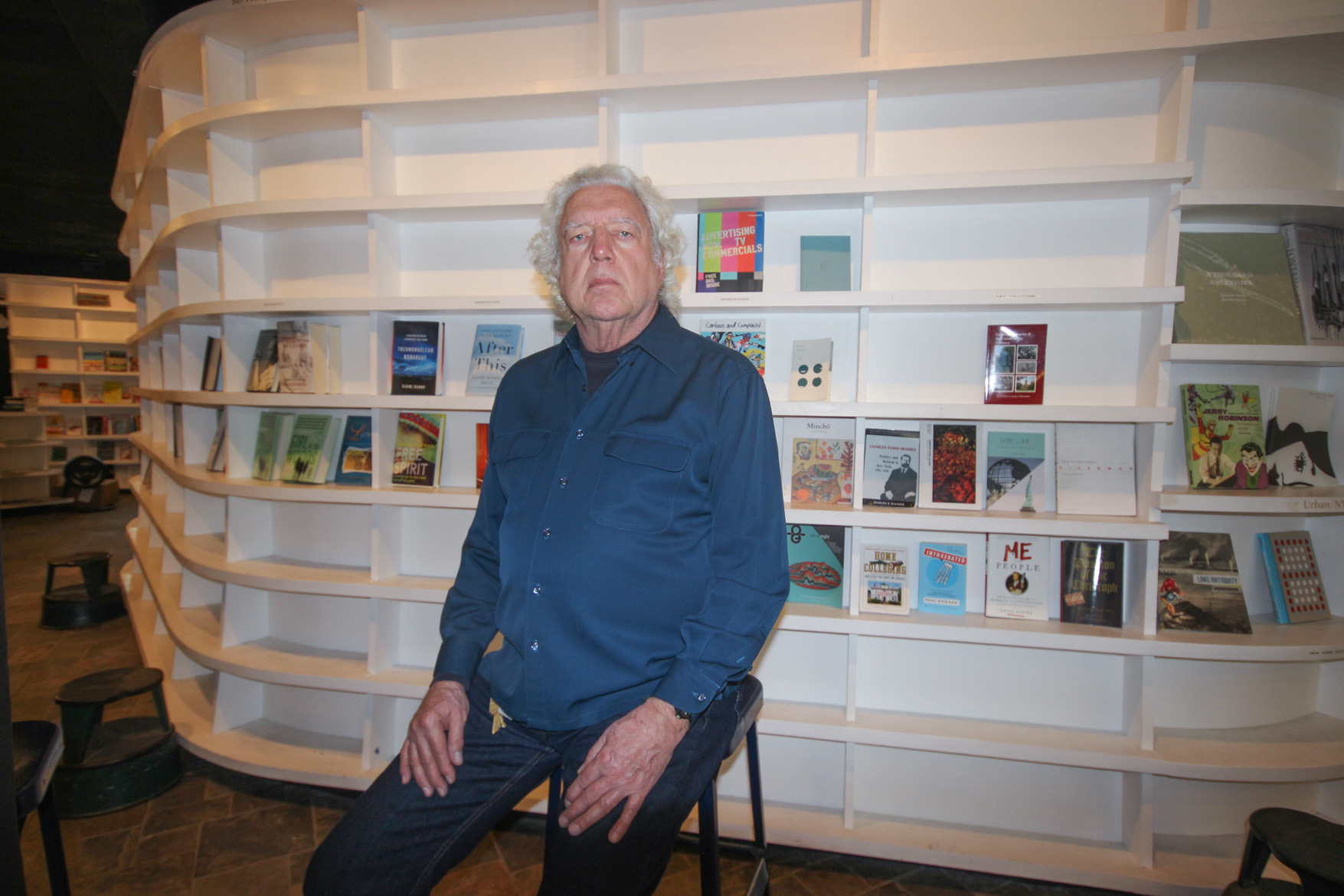
BY COLIN MIXSON | Beloved literary haven St. Mark’s Bookstore has entered the final stage of its terminal money woes, and the proverbial book will soon close on Manhattan’s oldest independent bookshop.
But owner Bob Contant is still clinging to hope that current talks with investors will result in a new bookstore emerging from the ashes of St. Mark’s, albeit, with a new name, new operators and none of the debt.
“We’re basically going out of business at this point,” said Contant. “There may be a continuation of a bookstore at this place, but it won’t be St. Marks. It will be a start-up and we’re not sure if we’ll be involved.”
St. Mark’s Bookshop has been in business for 38 years, in four different locations.
Contant has been struggling to satisfy debts owed to wholesale bookseller Baker and Taylor, to which he was “about $30,000” in arrears around the time when St. Mark’s moved to its current location on E. Third Street in 2014.
Following the move, Contant said he was able to pay off something close to half that debt, but struggled with follow-up payments. He was subsequently brought to court by the juggernaut bookseller in a suit that left his accounts frozen and a U.S. marshal auction scheduled, which was set to clear the store’s shelves on Feb. 10.
But then the auction was suddenly canceled and rescheduled for a later date, and Contant suspects that Baker and Taylor called off the sale in response to a scathing article by Publishers Weekly, a trade publication that the bookstore owner described as “the only thing the book business pays attention to.”
“They thought they could write us off and forget it, but now that it’s been mentioned and written up in Publishers Weekly, they realize they look really bad,” he said. “They’re putting an independent bookstore out of business. I think whoever in the credit department doing this was trying to set an example. And then somebody higher up said, ‘Wait a minute, this is the wrong approach.’ So they came back to us in a more solicitous manner and we’ll see what happens.”

Contant has since made a new offer to the book wholesaler to settle his debts, and is awaiting word from Baker and Taylor on whether they’ll accept the deal. But, whatever happens, Baker and Taylor isn’t the only creditor knocking on Contant’s door. And for the East Village book seller — who also owes thousands in back rent to his landlord, the New York City Housing Authority — even bankruptcy is a luxury he can’t afford.
“We can’t do Chapter 11, because we’re not going to reorganize anyway, and the debt is there,” he said. “It doesn’t matter whether we file for bankruptcy — it’s expensive to do, and the debt’s not going away. So, basically, we’re just going out of business.”
Ada Calhoun, author of “St. Mark’s Is Dead,” grew up on St. Mark’s Place, which is where the bookstore started out — hence, it’s name. Writing in the New Yorker last week, she said that the bookstore had stubbornly shunned ideas to change its business model to try to increase its profitability.
“St. Mark’s Bookshop has…seemed frustratingly unwilling to seek out new streams of revenue,” Calhoun wrote. “The former employees I’ve spoken to have mentioned various innovations that were floated over the years by friends of the store: offering deeper discounts, as the thriving Strand does; investing in advertising, or opening an in-store cafe like McNally Jackson. (‘Cafes are an enormous headache,’ Contant told me.) There was a push at some point to host more regular events, but Contant says that they weren’t a moneymaker. When I asked him about the possibility of selling used books, which tend to have more generous profit margins than new ones, he said, ‘Strand is a few blocks away, and who wants to compete against them there? It’s a whole different kind of business.’ ”
To this day, the storefront, owned by The Cooper Union, at Stuyvesant St. and Third Ave. that St. Mark’s Bookshop was forced to vacate due to rent remains empty. The store had been hit hard by the 2008 crash, and even with a reduced rent that Cooper conceded to in 2011 — in the face of intense community pressure — St. Mark’s couldn’t hang on at the high-profile location.
The new space, located just west of Avenue A, is smaller and more affordable, but not as good for business in terms of visibility, walk-in traffic and proximity to transportation as the former Third Ave. spot.


































